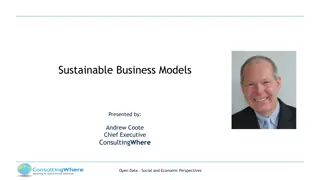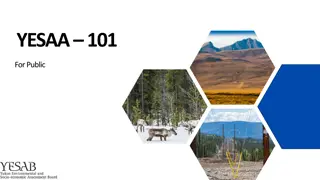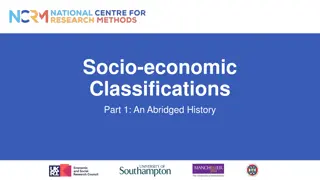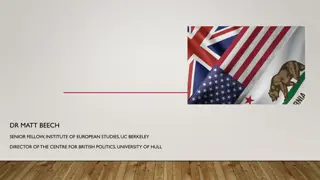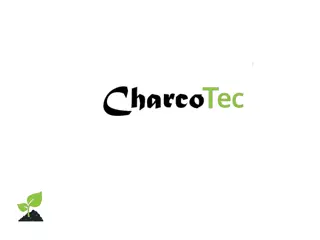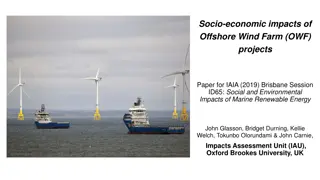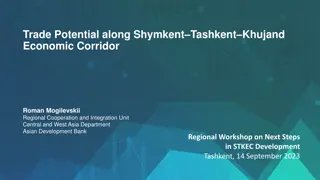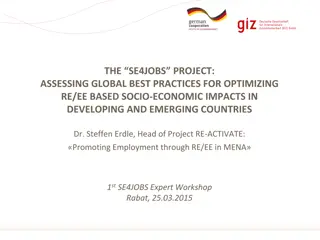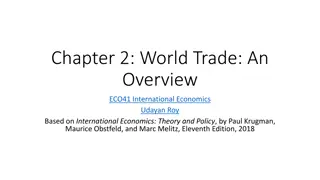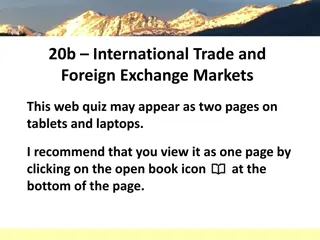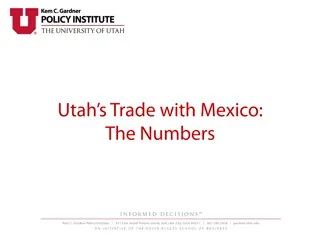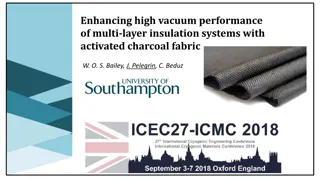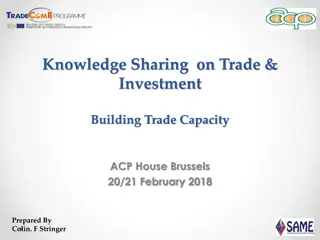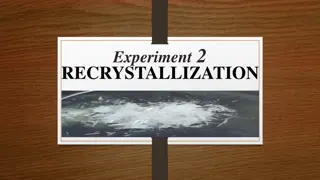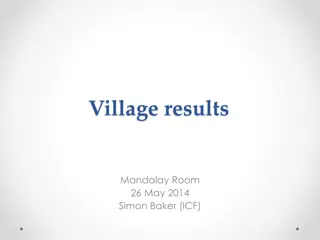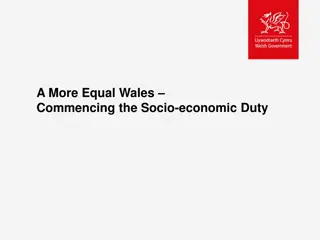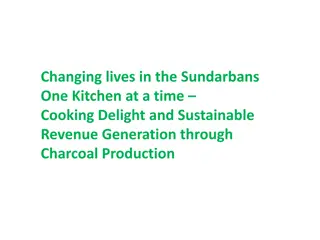Socio-Economic Impacts of Prosopis-Related Charcoal Trade in Gewane Woreda, Afar Region
The study explores the socio-economic impacts of the charcoal trade related to Prosopis in Gewane Woreda, Afar Region. It delves into the context of the charcoal trade, the organization of trade and actors involved, costs and benefits, governmental regulations, and provides conclusions and recommendations based on the findings. Various aspects such as charcoal production, transportation, involvement of local communities, and the economic benefits generated are highlighted.
Download Presentation

Please find below an Image/Link to download the presentation.
The content on the website is provided AS IS for your information and personal use only. It may not be sold, licensed, or shared on other websites without obtaining consent from the author. Download presentation by click this link. If you encounter any issues during the download, it is possible that the publisher has removed the file from their server.
E N D
Presentation Transcript
SOCIO-ECONOMIC IMPACTS OF PROSOPIS RELATED CHARCOAL TRADE IN GEWANE WOREDA, AFAR REGION MOHAMMED DETONA, MOHAMMED DETONA, ADDIS ABABA UNIVERSITY ADDIS ABABA UNIVERSITY MAY, 2014 MAY, 2014
Outline Context of Prosopis charcoal trade Organization of trade and actors involved Cost and benefits of charcoal trade Aspects of governmental regulation Conclusion and recommendations
Context of Prosopis charcoal trade Charcoal business started in 1997ec Established by FRAM Africa Objectives: Clearing of Prosopis invaded land Production of charcoal Cleared land shall be used for crop production In 2000ec charcoal business became illegal
Organization of trade and actors involved
Charcaol owner Mostly young Afar men and highlander Own the produced charcoal Employ workers and control production process Cover costs for workers until charcoal is produced Sell charcoal in different ways
Transportation of charcoal Charcoal transported by ISUZU truck for long distance Charcoal transported by donkey cart for short distance
Charcoal Makers Migrants from SNNP, Oromiya and Amhara Produce charcoal in the forest Employed by charcoal owners Paid by sack of charcoal produced
Charcoal makers at production site During production process Charcoal sacks ready to be picked up by ISUZU
Local community involved Young afar men as guards for charcoal makers Receive small payment from charcoal owners Illegal taxers at the road side
Benefits of charcoal business Income generation for involved Afar 20-25 ISUZUs bought by owners (2000-2005ec) 55-60 houses built in Galaeladora by owners Capital accumulation for agricultural investments Access to transportation
Costs of charcoal business Women raped and killed by charcoal makers Increasing incidences of people killed by lions High corruption due to illegality of the charcoal trade Monetarization of society and change of values, weakening of indigenous NRM institutions, Afar Madaa Woreda loses tax income through illegality estimate: 60,000-80,000 Birr per day Cutting of indigenous trees
Aspects of governmental regulation Existing rules and regulations not implemented Lack of political commitment Governmental individuals indirectly involved in charcoal business: partly beneficaries
Recommendations Increased political commitment: Implementation of rules and regulations Legalize charcoal trade from Prosopis and facilitate distribution of trade licenses to individuals Create awareness on alternative use of Prosopis and environmental costs of cutting indigenous trees
Thank you Thank you
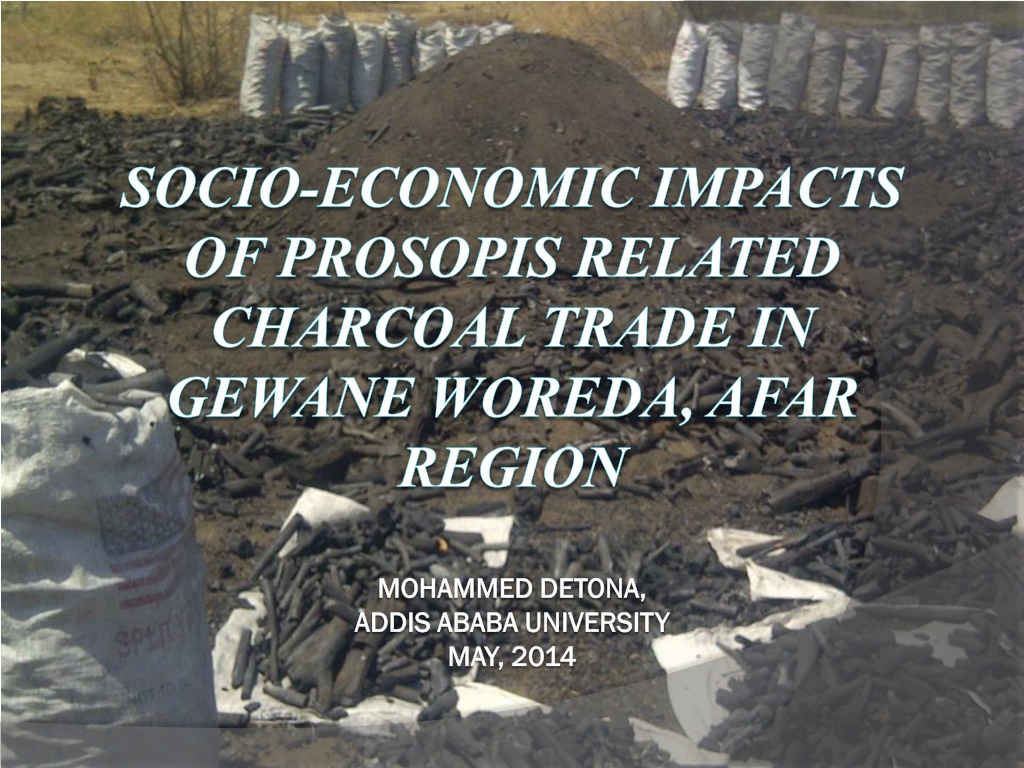
 undefined
undefined






